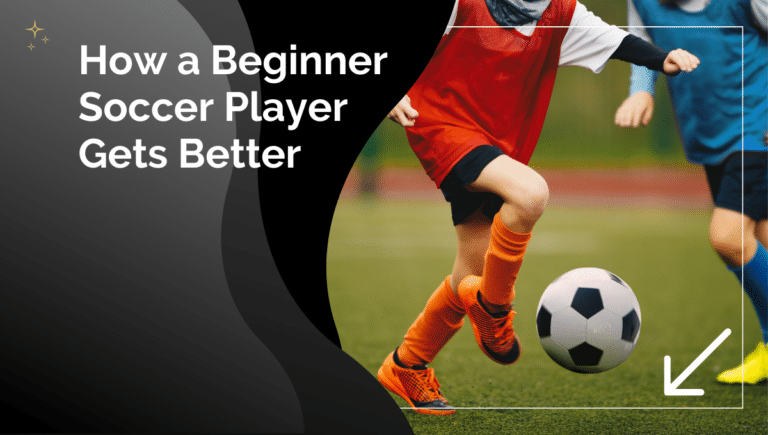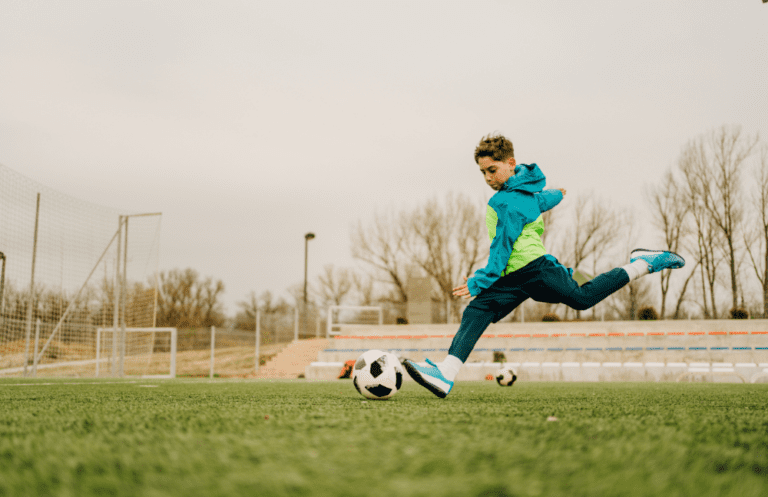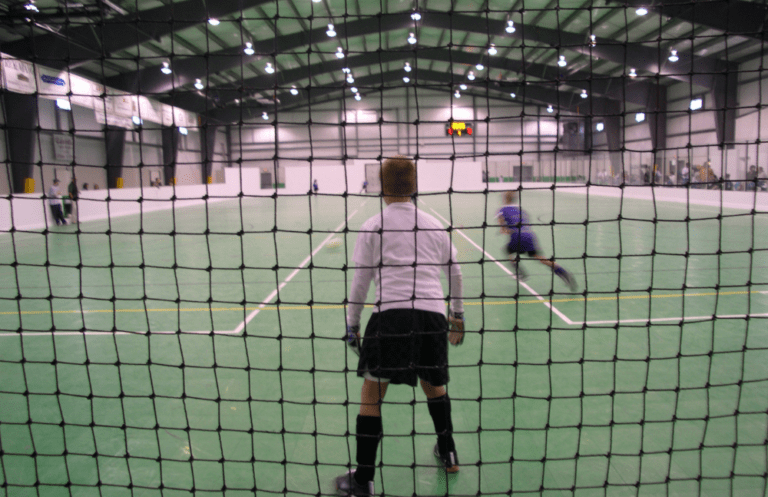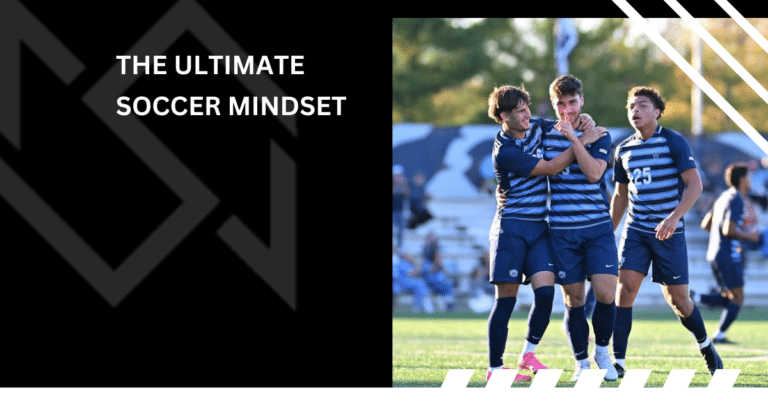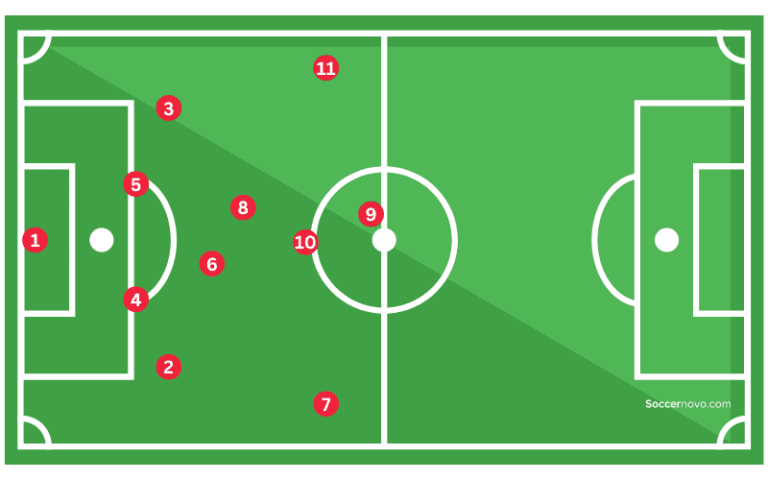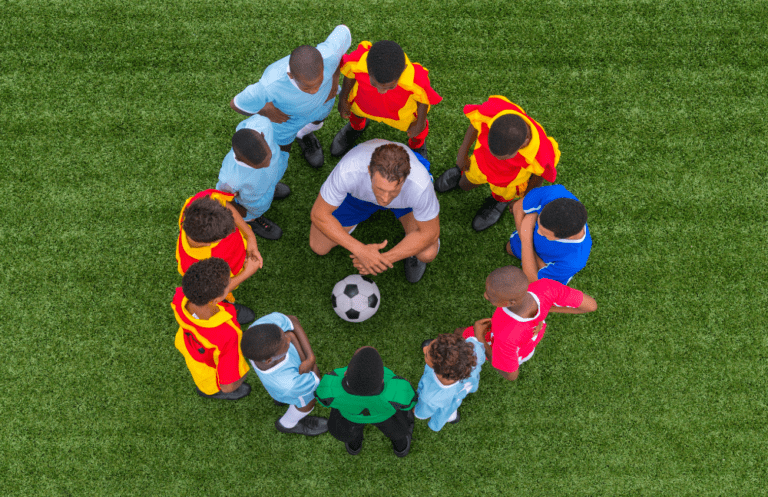How to Stop Social Media Addiction for Soccer Players
If the title of this article ‘How to stop social media addiction for soccer players’ made you pause. Then, this article may be for you (or your child).
Social media addiction is no joke. It can affect players in the worst way during their formative years.
If you find yourself scrolling through your feeds for hours on end, then you might have built up a habit that doesn’t serve you.
For teenagers, it’s been studied and proven that addiction to social media can result in a higher chance of depression and anxiety.
Social media apps like Instagram and TikTok can easily pull soccer players in with motivational clips and highlights. These are fine in moderation but it becomes a problem when it is a priority in your daily life.
It can not only impact your performance on the field but also your overall mental health.
This topic is near and dear to my heart because I see it in my own child. He’s not addicted because we have strict limits but I can see his mood and focus shift after he’s been on social media.
At the same time, I see many kids on the field, at restaurants, and in social circles constantly with their heads down swiping without taking in the moment.
I don’t want this for you or your child so we’ll explore some practical tips and strategies that can help you overcome your addiction and improve your soccer skills. Let’s read on (because this is that important).
Understanding Social Media Addiction
What is Social Media Addiction?
Social media addiction is a modern psychological condition where an individual becomes excessively preoccupied with social media platforms to the point where it interferes with their daily life.
It is characterized by a compulsive need to check notifications, scroll through feeds, and engage in online interactions.
Impact of Social Media on Teens
Social media addiction is a growing concern among teenagers, who are more likely to spend a significant amount of time on social media platforms.
This can have a negative impact on their mental health, leading to anxiety, depression, and low self-esteem.
Additionally, excessive social media use by athletes can affect their on-field performance, sleep patterns, academic performance, and social relationships.
How Does Social Media Addiction Affect Soccer Players?
As a soccer player, social media addiction can have a detrimental effect on your performance on and off the field. Spending too much time on social media can lead to distraction, which can affect your focus during training and matches. It can also lead to a lack of sleep, which can affect your energy levels and recovery time.
Furthermore, social media addiction can lead to a lack of motivation and discipline, which are essential qualities for any athlete. The constant shot of dopamine from your phone makes ‘real life’ seem boring.
Spending too much time on social media can also affect your social relationships with teammates and coaches, leading to a lack of communication and teamwork.
To combat social media addiction, it is important to set clear boundaries and limits on your social media use. This can include turning off notifications, limiting your time on social media, and removing social media apps from your phone during training and matches.
Additionally, finding other hobbies and activities outside of soccer can help you stay motivated and reduce your dependence on social media.
Identifying Signs of Social Media Addiction
Identifying the signs of addiction is the first step in overcoming it. Here are some physical and psychological signs to watch out for:
Physical Signs
- Spending long periods of time on social media
- Neglecting basic physical needs such as eating, sleeping, or exercising
- Developing consistent headaches, eye strain, or other physical discomforts from staring at screens for extended periods
Psychological Signs
- Feeling anxious, agitated, or restless when unable to access social media
- Obsessively checking social media notifications or messages
- Neglecting responsibilities or relationships in favor of social media use
- Feeling a need to constantly share or document experiences on social media
It’s important to note that not all social media use is addiction. However, if you find yourself exhibiting several of these signs, it may be time to reevaluate your relationship with social media.
In the next section, we’ll discuss some tips for overcoming social media addiction.
Breaking the Cycle of Social Media Addiction
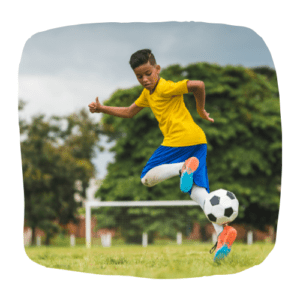
Here are some strategies to help you break the cycle:
Setting Boundaries
One of the most effective ways to break the cycle of social media addiction is by setting clear boundaries.
This could mean limiting your social media use to a specific time of day or setting a timer for how long you can spend on social media each day.
You can also try removing social media apps from your phone or disabling notifications to reduce the temptation to check your phone constantly.
For us, we have a limit of one hour per day for our 13-year-old son. During this time, he’s allowed to go on social media, text, etc. Once he’s done with his time, the apps require a passcode which I have. After this, he’s only allowed to call and text (to a certain extent).
Some parents might find that the restrictions above are too strict but, in a way, my son finds it liberating and helpful. It sets clear boundaries and he is more aware of what he’s using and when. He’s not missing out on much. Instead, he’s gaining more life.
Creating a Support System
Having a support system can be incredibly helpful when trying to break the cycle of social media addiction.
Talk to your friends or family members about your goals and ask for their support.
If you don’t have a close support system, try announcing on social media what your intentions are. You may find positive support that way.
Engaging in Alternative Activities
We have one time on this Earth. Let’s take advantage of it.
You could up a new hobby, spend more time outdoors, or connect with friends in person.
By finding alternative activities that bring you joy and fulfillment, you can reduce the amount of time you spend on social media and break the cycle of addiction.
Maintaining a Social Media-Free Lifestyle
As a soccer player, social media can be a minor or major distraction that can have a negative impact on your well-being. Maintaining a social media-free lifestyle can help you stay focused and improve your game. Here are some tips to help you stay off social media:
Tips for Staying Off Social Media
- Set a specific time limit for social media use each day and stick to it. For example, you could allow yourself 30 minutes in the morning and 30 minutes in the evening.
- Create rules like ‘absolutely no screen time before games’.
- Delete social media apps from your phone to reduce the temptation to check them constantly.
- Use apps or features like Apple’s Screen Time to monitor your social media use and limit your time spent on these platforms.
- Find other activities to fill your free time, such as reading, exercising, or spending time with friends and family.
- Consider purchasing an old-school flip phone that can only call and text.
- Surround yourself with people who support your decision to stay off social media and encourage you to stay focused on your goals.
Try Monk Mode
Monk mode refers to a period of time where you completely disconnect from social media and other distractions. This can be a great way to reset your mind and improve your focus.
Professional athletes do this to focus on a concentrated period. This could be during an intense 4-week off-season workout or playoffs.
Here are some tips for trying monk mode:
- Set a specific time period for monk mode, such as a week or a month.
- Let your friends and family know that you will be disconnecting from social media during this time.
- Use this time to focus on your goals and improve your skills as a soccer player.
- Find other ways to stay connected with friends and family, such as phone calls or in-person visits.
I’ve tried monk mode in my personal life and it is a great reset. I deleted all social media apps and cut down on my phone use considerably. The clarity, focus, and happiness you gain are indescribable. I was able to jump back in without the feeling of ‘I need this’.
Dealing with Relapses
It’s natural to have relapses when trying to stay off social media. Here are some tips for dealing with relapses:
- Don’t beat yourself up over a relapse. It’s okay to make mistakes. Forget it and move on.
- Identify what triggered the relapse and try to avoid that trigger in the future.
- Remind yourself of why you decided to stay off social media in the first place.
- Reach out to friends and family for support.
By following these tips, you can maintain a social media-free lifestyle and improve your focus and performance on the soccer field.
Final Thoughts
Social media addiction is a real problem for soccer players, and it can negatively impact their performance on and off the field. It is important to recognize the signs of addiction and take steps to overcome it.
One of the first steps you can take is to limit your use of social media. Set specific times of the day when you allow yourself to check your accounts, and stick to those times. You can also use apps and tools that help you track your usage and set limits.
Another important step is to focus on building real-world relationships and connections. Spend time with your teammates, coaches, family, and friends. Engage in activities that do not involve social media, such as playing sports, reading, or listening to music.
It is also important to be mindful of the content you consume on social media. Avoid negative and toxic accounts, and instead follow accounts that inspire and motivate you. Use social media to learn and grow, not to compare yourself to others or seek validation.
Just keep asking yourself, “Will this matter a year from now?” Scrolling through social media, definitely not. More clarity and focused training, for sure.


